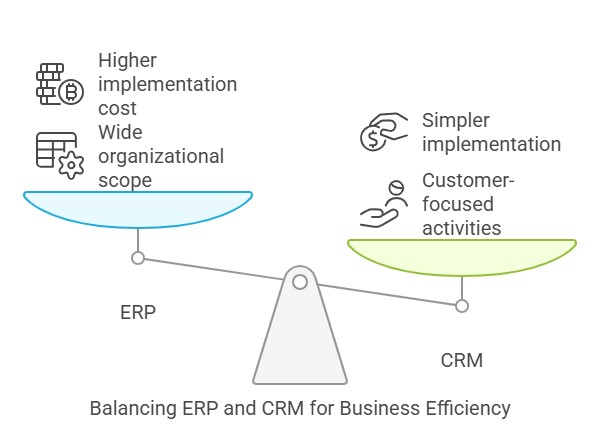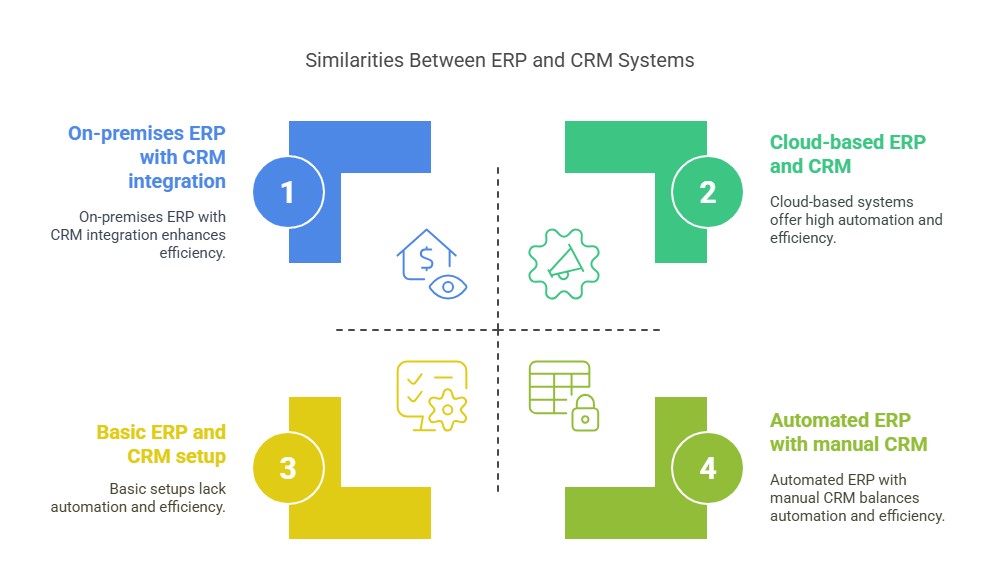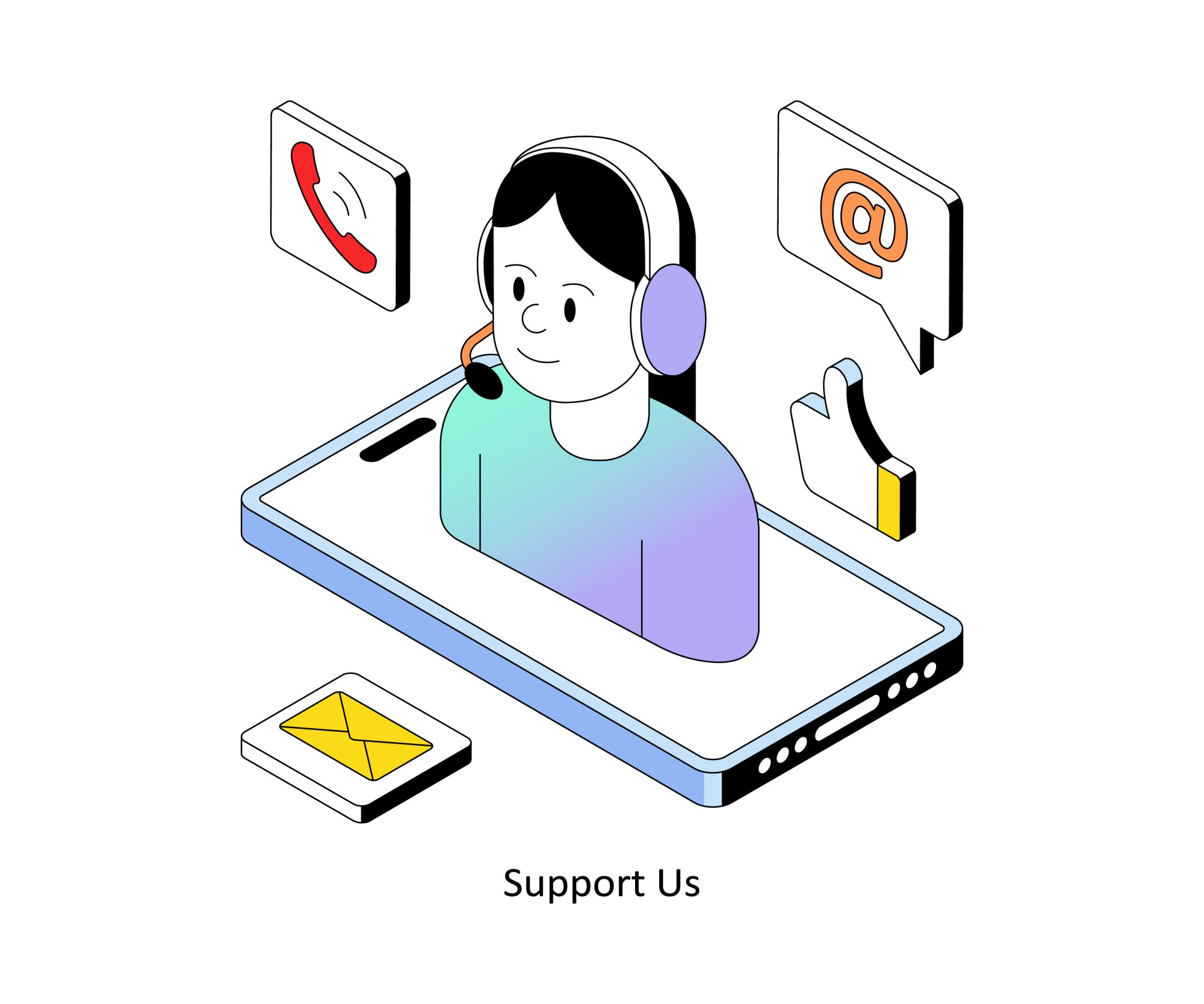What Is An ERP System For Business Owners?
An Enterprise Resource Planning (ERP) system is your business’s digital backbone, connecting all your financial and operational systems to a central database. Think of it as the command center that brings together your accounting, inventory, supply chain, HR, and procurement processes into one unified platform. You gain immediate visibility across your entire operation without jumping between multiple systems.
ERP solutions help you automate core business processes and eliminate the headaches of manual data entry and reconciliation. You’ll notice faster financial close times, with many businesses reducing their monthly closing from weeks to just days. The system enforces proper financial controls through role-based permissions, ensuring only authorized staff access sensitive information.
Read more: Growing Industries Adopting ERP Systems
What Is A CRM System For Business Owners?
A Customer Relationship Management (CRM) system serves as your central hub for managing all customer interactions and relationships. It’s a powerful tool that collects, organizes, and analyzes customer data across every touchpoint, from initial contact to repeat purchases. Think of it as your business’s memory bank for everything customer-related.
CRM software helps you track sales opportunities, manage marketing campaigns, and improve customer service—all from one platform. You’ll get valuable insights into customer behavior, preferences, and purchase history that can drive smarter business decisions. The front-office focus of CRM means your sales and service teams can access critical customer information whenever they need it.
Unlike ERP systems that handle back-office processes, CRMs are specifically designed with customer relationships at their core. You can use a CRM to identify high-value customers, personalize communications, and create more targeted marketing efforts.
Modern CRMs offer features like sales force automation, contact management, and customer service tools all under one roof. Your team can see whether a customer has outstanding support tickets, view their complete purchase history, or check their status in your sales pipeline in seconds.
The right CRM system transforms how you interact with customers by making information accessible and actionable. You’ll benefit from improved communication, better lead management, and the ability to deliver more personalized experiences that keep customers coming back.
The Core Difference Between ERP And CRM Systems

ERP (Enterprise Resource Planning) and CRM (Customer Relationship Management) systems serve fundamentally different purposes in a business ecosystem. ERP focuses on managing back-office operations like finance, procurement, accounting, and HR, essentially connecting all operational systems to a central database. CRM, on the other hand, concentrates on front-end processes and customer interactions.
Think of ERP as the brain that coordinates your internal business functions. It helps you track everything from inventory and supply chain to manufacturing processes and financial data, giving you a holistic view of your operations.
CRM is more like your business’s social intelligence. It helps you manage customer relationships, track sales opportunities, and improve marketing campaigns—essentially anything that touches your customers directly.
Primary Usage Differences
- ERP: Used across multiple departments including finance, operations, HR, and procurement
- CRM: Primarily used by sales, marketing, and customer service teams
The scope of these systems reflects their intended purpose. ERP casts a wide net over your entire organization, touching nearly every department. CRM zeroes in specifically on customer-facing activities.
Integration Considerations
You’ll find that some ERP systems include basic CRM features, but not vice versa. Your ERP might track orders and basic customer records, while your CRM offers deeper tools for managing customer interactions and sales pipelines.
Many businesses get the best results by integrating both systems. This creates a seamless flow of information between your front-office and back-office operations, improving both efficiency and customer experience.
Cost Factors
ERP implementations typically cost more due to their complexity and broader scope. When you implement an ERP, you’re essentially rewiring multiple business processes across your organization.
CRM systems generally require less investment upfront. They focus mainly on customer-facing processes, making them simpler and less expensive to implement—though premium features can still add up.
The Similarities Between ERP And CRM Systems

While ERP and CRM systems serve different primary functions, they share several important similarities that make them complementary business tools. Both systems act as centralized data repositories, storing crucial business information in one accessible location.
This centralized data management eliminates silos and ensures everyone in your organization works with the same accurate information. Your teams can make better decisions when they have real-time access to relevant data.
Achieving Automation
Automation capabilities stand out as another key similarity. ERP and CRM systems both take repetitive tasks off your plate. They automate workflows, data entry, and reporting functions that would otherwise consume valuable staff time.
In that sense, the proper setup of both ERP and CRM systems can massively reduce physical labour while also helping reduce human error.
Strives for Efficiency
Process optimization is at the heart of both technologies. You’ll find that both ERP and CRM systems are designed to streamline operations, making your business more efficient and productive.
Both systems offer similar deployment options to match your business needs:
- On-premises installation (traditional software model)
- Cloud-based solutions (SaaS model)
- Hybrid approaches combining elements of both
The cloud-based options provide you with greater flexibility, scalability, and typically lower upfront costs. You can start small and expand as your business grows.
Both ERP and CRM help optimize everyday tasks and business processes. They collect, process, and analyze data to provide actionable insights for your team.
These systems integrate with other business applications, creating a more cohesive technology ecosystem within your organization. This connectivity enhances information flow and reduces duplicate data entry.
Making A Decision: Which One Should Businesses Opt For? ERP Or CRM?
Choosing between ERP and CRM isn’t a one-size-fits-all decision. Your business needs should drive this choice.
Look at your current pain points. Are you struggling with managing internal operations and data across departments? ERP might be your answer. If customer relationships and sales processes need improvement, CRM could be the better fit.
Budget matters too. ERP systems typically require larger investments and more complex implementation. CRM solutions often come with more flexible pricing options and quicker setup.
Many growing businesses start with a CRM system and add ERP later. This approach makes sense when customer acquisition is your immediate priority.
Some companies need both. You might benefit from a CRM-ERP integration if you want comprehensive business management that connects customer data with operational systems.
Think about your team’s adaptability. New software requires training and adjustment periods. Choose a solution that your team can embrace without disrupting daily operations.
Remember to plan for the future. Your chosen system should scale with your business growth and evolving needs over the next 3-5 years.
Aspert Innovations: The Leading Choice For ERP System Integration
When searching for an ERP system in Malaysia, Aspert Innovations stands out as the premier provider. Consisting of experts in the ERP industry, Aspert’s consultants are always within reach which you can contact them here.


